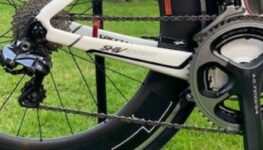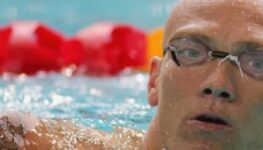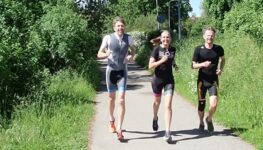Michael Johnson – his journey
Podcast of the week – Michael Johnson discussing “greatness” and his journey
Michael Johnson is generally considered to be the greatest sprinter in history. He formerly held the 200m and 400m World and Olympic records and is the only male athlete in history to have won the 200m and 400m events in a single Olympics!
You may remember we refer to Michael’s running in our running seminar (videos of him running at the Olympics)? His running movements are renowned for being different / unorthodox / strange / comical (almost leaning backwards, fixed torso/shoulders, high cadence legs, etc), but they obviously made him fast and efficient. Sound familiar, and why we sometimes coach things differently?
Michael is a great speaker; he is entertaining and to the point. Here are some key notes to take away from his interview:
- Some training is fun, and some training is not – accept this, believe in the training you are doing, and it’s benefit to your development – become disciplined
- Once you’ve found a coach that works with you and your body, believe in them. Michael was laughed at and told by inexperienced / narrow minded coaches he’d never win unless he changed the way he runs (conforming to “traditional” techniques) – how wrong they were and lucky he believed in himself and his eventual coach
- Our approach is different, but for a reason. We don’t attempt to conform to textbook or popular beliefs – because they are too general and not suited to most people
- Be aware of your body when training! Know what you are doing and feeling so you become in tune with your muscles and movements. Those that have better mind – muscle connection learn new tasks quicker and recover quicker (as Michael proved with his recovery from his stroke)
- Always be aware in your training session – where are your hands, arms, feet, knees, is your torso engaged, etc, etc – be PRESENT in sessions so you learn your movements and perceived efforts for race day
- Build experience with races. Race various times throughout the season to learn how to manage the excitement and pressure, learn the race plans, learn to execute race plans and adapt during races
- You can enter up to 5 triathlons in a single Attack phase of your training plans – racing each one is NOT the objective, learning from them is (treating them as training sessions – long bricks)
- Always assess yourself and use constructive criticism. Do so WITHOUT being emotional, be objective so you can learn from the experience
- Learn from and accept the victories and defeats, don’t let your impulse to get emotional (celebrating or grieving) take over – or you risk becoming blind to how you succeeded or failed
- Transfer your sporting discipline and focus to other areas of life
- What’s the difference between confidence or arrogance?
- Confidence in your ability, training, fitness, commitment, past achievements (in training, racing and health) and mental preparation
- Arrogance is similar to the above but without validation or actually respecting the variables (other athletes, lead up to events in Michael’s case; the water conditions, wind, heat, course routes, etc in your cases – there are so many MORE variable in multisport endurance events!)
One of the World’s greatest athletes with so many important messages to tell – different sport, but a very similar approach to reaching true potential.
Train, race, assess, learn and adapt



